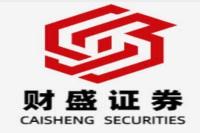LG Energy Solution Delays US Plant Amidst Slowing EV Demand: What's Next for the Battery Giant?
Meta Description: LG Energy Solution, a leading battery manufacturer, has delayed the completion of its third US plant in Michigan due to softening EV demand. This article explores the reasons behind the delay, analyzes its impact on the EV industry, and examines LG Energy Solution's future plans.
Introduction
The electric vehicle (EV) market is experiencing a period of unexpected turbulence. While the long-term outlook for EVs remains positive, recent months have seen a slowdown in demand, leading to adjustments across the industry. One of the most significant developments is the decision by LG Energy Solution, a global leader in battery production, to delay the completion of its third US manufacturing facility in Michigan. This move, fueled by a softening EV market, has sent ripples through the EV ecosystem, raising questions about the future of the industry and its key players.
LG Energy Solution's US Plant Delay: A Sign of the Times
The delay of LG Energy Solution's US plant, a joint venture with General Motors, is a testament to the shifting dynamics within the EV market. The facility, originally slated to start operations in the first half of 2025, was part of a $2.6 billion investment to expand battery production capacity. However, the company has cited a "readjustment of the overall investment pace" as the reason behind the delay. While construction has not been halted completely, LG Energy Solution is implementing "flexible operational measures" in response to the evolving market conditions.
The Impact of Slowing EV Demand on the Industry
The slowdown in EV demand is a complex issue with multiple contributing factors. Here's a breakdown of some of the key drivers:
- Global Economic Uncertainty: The world economy is facing a multitude of headwinds, including inflation, rising interest rates, and geopolitical tensions. This uncertainty has led to a decrease in consumer confidence and spending, impacting the demand for discretionary purchases like EVs.
- Supply Chain Challenges: Persistent supply chain disruptions and material shortages, particularly for key EV components like semiconductors, have constrained production and increased prices.
- Rising Energy Costs: The surge in energy prices has made it more expensive to charge EVs, adding to the overall cost of ownership and dampening demand.
- Competition from Traditional Automakers: Traditional automakers are aggressively entering the EV market, offering competitive models and challenging the dominance of EV startups.
LG Energy Solution's Strategies for Navigating the Market Shift
While the slowdown in EV demand has forced LG Energy Solution to adjust its plans, the company remains optimistic about the long-term prospects of the EV industry. To navigate the current challenges, LG Energy Solution is implementing a range of strategies:
- Focus on Efficiency and Cost Optimization: The company is prioritizing operational efficiency and cost optimization measures to ensure profitability in a competitive market. This includes streamlining production processes, negotiating favorable supply chain agreements, and exploring alternative materials.
- Expansion into New Markets: LG Energy Solution is expanding its operations into emerging markets, particularly in Asia and Europe, where EV adoption is expected to grow rapidly.
- Partnerships and Collaborations: The company is forging strategic partnerships and collaborations with automotive manufacturers, technology companies, and government agencies to gain access to new markets, technologies, and resources.
The Future of LG Energy Solution and the EV Industry
The delay of LG Energy Solution's US plant is a reminder of the dynamic nature of the EV market. While the current slowdown presents challenges, the long-term growth potential of the industry remains intact. As a leading battery manufacturer, LG Energy Solution is well-positioned to capitalize on the future growth of EVs.
- Innovation and Technological Advancements: LG Energy Solution is investing heavily in research and development to create next-generation batteries with improved performance, longer lifespans, and lower costs. This includes advancements in battery chemistry, materials science, and manufacturing processes.
- Sustainability and Circular Economy: The company is committed to sustainability and circular economy principles, aiming to reduce its environmental footprint and promote responsible battery recycling and reuse.
- Market Diversification: LG Energy Solution is expanding its customer base beyond the automotive industry, exploring opportunities in stationary energy storage, grid-scale applications, and consumer electronics.
What Does This Mean for Investors?
The delay of LG Energy Solution's US plant has understandably caused some concerns among investors. However, it is important to remember that this is a strategic decision driven by evolving market conditions.
- Short-Term Volatility: The slowdown in EV demand could lead to some short-term volatility in LG Energy Solution's stock price. However, the company's long-term growth potential remains strong, driven by the global transition to electric mobility.
- Focus on Long-Term Value: For investors with a long-term investment horizon, LG Energy Solution's dedication to innovation, sustainability, and market diversification presents attractive growth opportunities.
The Bigger Picture: A Turning Point for the EV Industry?
The delay of LG Energy Solution's US plant is more than just a company-specific event. It is a signal of the evolving dynamics within the EV industry. While the long-term prospects remain positive, the current slowdown is a reminder that the path to widespread EV adoption will not be linear.
- Challenges and Opportunities: The EV industry faces a range of challenges, including economic uncertainty, supply chain disruptions, and competition from traditional automakers. However, these challenges also present opportunities for companies that can adapt, innovate, and build strong partnerships.
- The Importance of Adaptation: The success of the EV industry will depend on its ability to adapt to changing market conditions, respond to consumer needs, and embrace technological advancements.
Conclusion: Navigating the EV Revolution
The EV market is undergoing a period of rapid transformation, characterized by both exciting opportunities and challenging obstacles. The delay of LG Energy Solution's US plant is a tangible example of the adjustments that are occurring within the industry. However, this does not signal the end of the EV revolution. LG Energy Solution, along with other key players, is committed to navigating these challenges and driving the adoption of electric mobility. By embracing innovation, sustainability, and diversification, the EV industry has the potential to create a cleaner, more sustainable, and connected future for transportation.
FAQs
Q: What are the key reasons behind the delay of LG Energy Solution's US plant?
A: The primary reason is the softening demand for EVs, driven by factors like global economic uncertainty, supply chain challenges, rising energy costs, and increased competition from traditional automakers.
Q: Will the plant construction be completely halted?
A: No, construction has not been stopped entirely. LG Energy Solution is implementing flexible operational measures to adjust to the changing market conditions.
Q: What are LG Energy Solution's strategies for navigating the market slowdown?
A: The company is focusing on efficiency and cost optimization, expanding into new markets, and forging strategic partnerships to secure its position in the long term.
Q: Is the slowdown in EV demand a cause for concern?
A: While the current slowdown presents challenges, the long-term growth potential of the EV industry remains intact.
Q: What are the key factors that will drive the future growth of the EV industry?
A: The future growth of the EV industry will be fueled by innovation, sustainability, technological advancements, and government policies that promote electric mobility.
Q: How can investors navigate the volatility in the EV market?
A: Investors should focus on companies with strong fundamentals, a commitment to innovation, and a diversified product portfolio. A long-term investment horizon is essential for navigating the fluctuations in the EV market.



